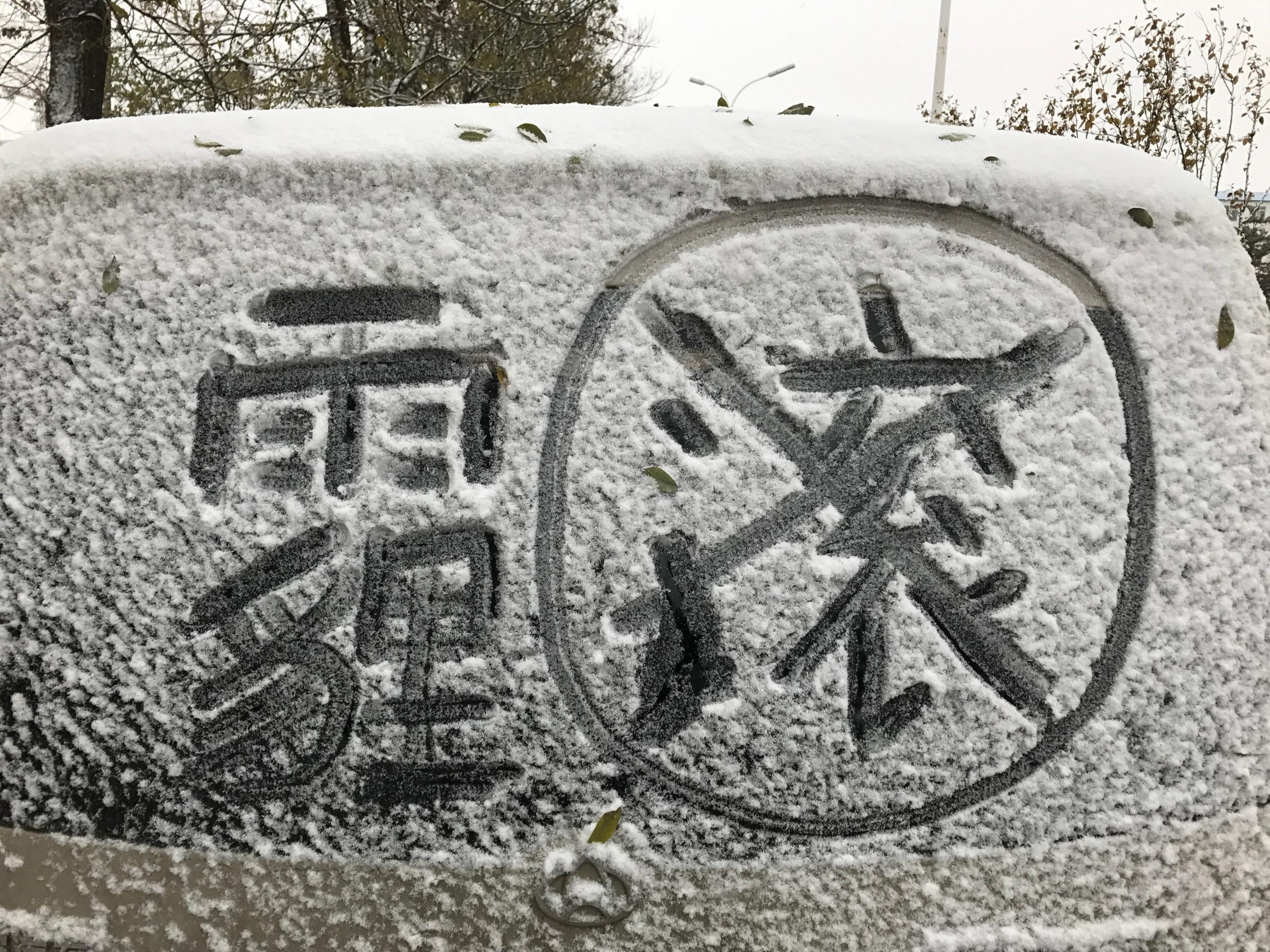China’s children are having it tough this winter, and it’s not just the freezing temperatures. Their still developing lungs are subjected to some of the worst air pollution on the planet, much of it caused by the nation’s power stations burning more coal to heat hundreds of millions of homes in the chilly weather.
Some students have even been forced to sit exams outside in thick smog.
But things got even worse this week with the news that there will be no building snowmen or sledding in the Chinese capital this winter, after Beijing’s Meteorological Bureau took to social media to sternly warn against venturing out — let alone playing — in the city’s snow.
“We suggest everybody stays indoors. The snow is very dirty! The snow is very dirty! The snow is very dirty!” the bureau announced in triplicate Thursday on China’s Twitter-like microblog Weibo. If citizens had no choice but to venture out, the bureau advised they bring protection: “It is not pretentious to use an umbrella on a snowing smoggy day,” it advised.

The reason? China’s Ministry of Environmental Protection revealed that Beijing’s average air-quality index (AQI) over the past month was 195, peaking at 470. The World Health Organization puts safe levels at just 25. And the snow will be full of the same deadly particles and toxins that contributed to these appalling readings.
While Beijing’s pollution is shocking — a time-lapse video of a dense wall of pollution engulfing previously blue skies over the city recently went viral on social media — toxic snow is not just limited to the capital. Many industrial cities across China’s northeast fare much worse. According to new research, smog is as deadly as smoking cigarettes in some parts of the country, and could be the cause of 1 in 3 deaths nationwide.
The government has vowed to tackle the problem, especially after an antipollution protest was staged in the central city of Chengdu last month. Chinese state media says there were 198 days “blue-sky days” in 2016, which is a dozen more than the previous year. On Friday, officials reported that China would spend $361 billion on developing renewable energy by 2020.
In the meantime, Chinese must rely on their fortitude to get through the grim winter — and keep away from the slush, snow and ice. “Hey Meteorological Bureau’s Weibo editor, I can feel your depression,” posted one microblogger.
— With reporting by Zhang Chi / Beijing
More Must-Reads from TIME
- Caitlin Clark Is TIME's 2024 Athlete of the Year
- Where Trump 2.0 Will Differ From 1.0
- Is Intermittent Fasting Good or Bad for You?
- The 100 Must-Read Books of 2024
- Column: If Optimism Feels Ridiculous Now, Try Hope
- The Future of Climate Action Is Trade Policy
- FX’s Say Nothing Is the Must-Watch Political Thriller of 2024
- Merle Bombardieri Is Helping People Make the Baby Decision
Write to Charlie Campbell / Beijing at charlie.campbell@time.com